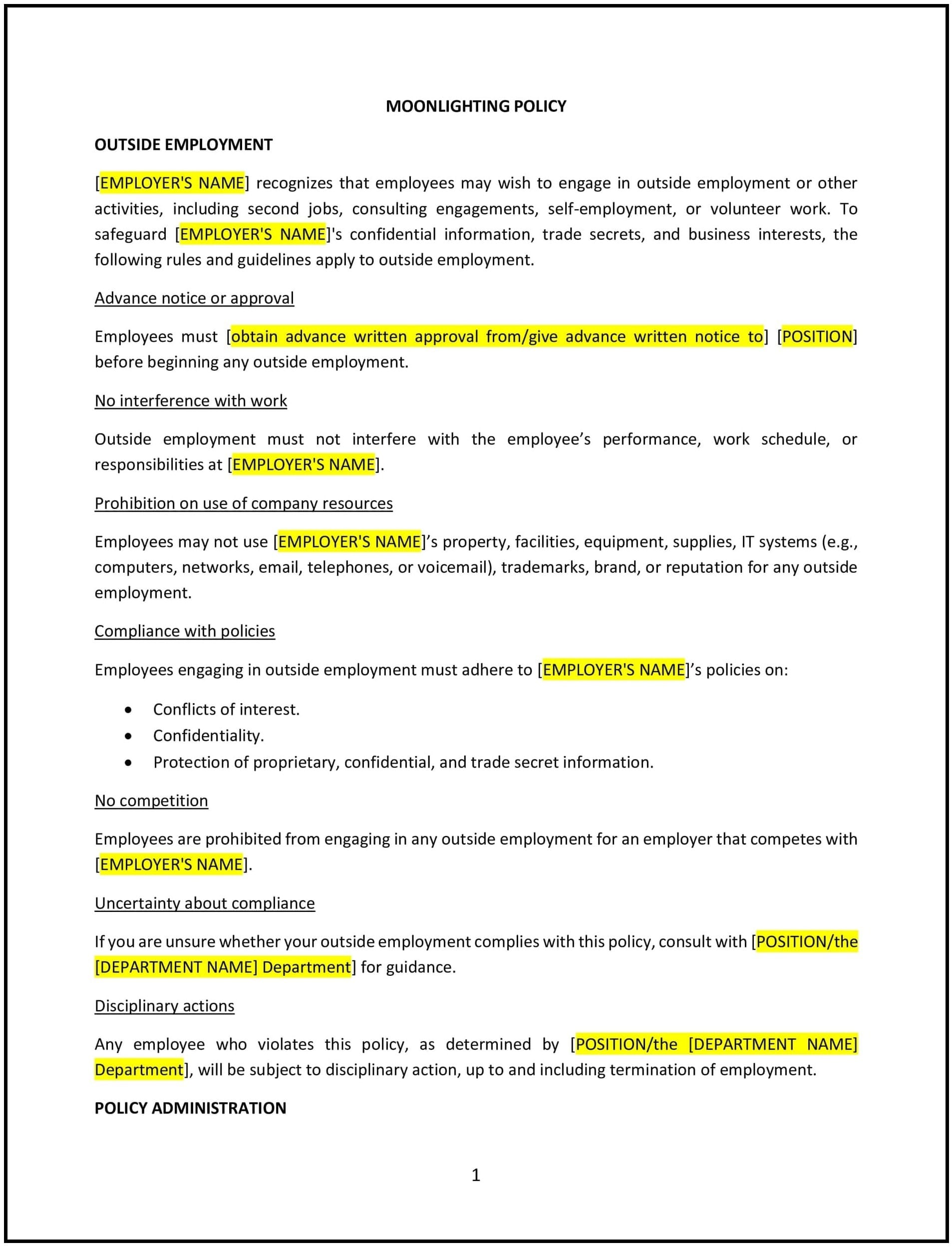Got contracts to review? While you're here for policies, let Cobrief make contract review effortless—start your free review now.

Customize this template for free
Moonlighting policy (Nevada)
This moonlighting policy is designed to help Nevada businesses manage situations where employees take on additional employment outside their primary role. It provides guidelines to ensure that secondary employment does not conflict with the company’s interests, impact job performance, or violate any legal or contractual obligations.
By adopting this policy, businesses can protect their interests, maintain productivity, and foster transparency with employees.
How to use this moonlighting policy (Nevada)
- Define moonlighting: Clearly explain what constitutes moonlighting, such as taking on additional employment, freelance work, or starting a side business while employed with the company.
- Set approval requirements: Specify whether employees must disclose or seek approval for secondary employment, including the process for doing so.
- Address conflicts of interest: Prohibit secondary employment that creates a conflict of interest, competes with the company, or involves working for competitors.
- Outline performance expectations: Emphasize that secondary employment must not interfere with the employee’s primary job responsibilities or impact their performance.
- Include confidentiality provisions: Reinforce that employees must protect company information and avoid using company resources for outside work.
- Address working hours: Specify that moonlighting activities must be conducted outside of regular working hours and off company premises.
- Provide exceptions: Include any exceptions to the policy, such as volunteering, unpaid activities, or specific roles that may have different guidelines.
- Enforce compliance: Outline the consequences of violating the policy, such as disciplinary action, up to and including termination.
Benefits of using this moonlighting policy (Nevada)
This policy provides several benefits for Nevada businesses:
- Prevents conflicts of interest: Ensures that employees do not engage in activities that compromise the company’s interests or reputation.
- Maintains productivity: Clarifies that secondary employment must not interfere with an employee’s primary job performance.
- Promotes transparency: Encourages open communication between employees and employers about outside employment.
- Protects company resources: Ensures that company assets and information are not used for personal gain.
- Reduces legal risks: Establishes clear guidelines to prevent disputes or breaches of contractual obligations.
Tips for using this moonlighting policy (Nevada)
- Communicate the policy clearly: Ensure employees are aware of the policy and understand their responsibilities regarding secondary employment.
- Create a disclosure process: Implement a simple process for employees to disclose or seek approval for moonlighting activities.
- Monitor compliance: Regularly review employee performance to ensure moonlighting activities do not negatively impact their primary responsibilities.
- Provide training for managers: Train managers to handle moonlighting disclosures and potential conflicts of interest fairly and consistently.
- Update the policy as needed: Review the policy periodically to reflect changes in company operations, industry practices, or legal requirements.